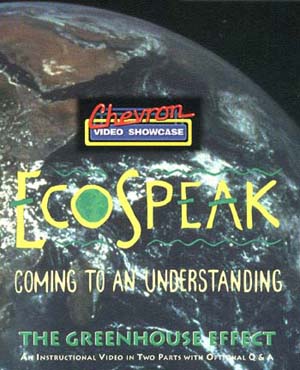Industry sponsored materials have been used in US schools since the mid-twentieth century. By the 1970s “64% of Fortune’s 500, 90% of the trade associations, and 90% of the utilities” were sending “informational” material to schools and much of this was designed for use in classrooms. The four main subject areas these materials covered were nutrition, energy, the environment, and economics and that is still the case.
Industry sponsored school materials tend to give students a distorted picture of environmental, health and social issues. They present a corporate view as ‘fact’ and report the results of corporate-funded studies without saying who financed them. They often fail to “acknowledge the sponsor’s own financial interest, or to disclose conditions and information that affect the accuracy of what they teach.”
corporate view as ‘fact’ and report the results of corporate-funded studies without saying who financed them. They often fail to “acknowledge the sponsor’s own financial interest, or to disclose conditions and information that affect the accuracy of what they teach.”
The materials:
They usually do not include blatant mistruths or inaccuracies but often distort an issue through omission of relevant information, reliance on biased industry studies, and a misleading emphasis on particular aspects of an issue.
In a 1995 report entitled Captive Kids, the US Consumers Union analysed 111 different sets of school materials sponsored by commercial enterprises, trade organisations and corporate backed nonprofit organisations. It found that nearly 80 per cent of the sponsored school materials it analysed “contained biased or incomplete information, promoting a viewpoint that favors consumption of the sponsor’s product or service or a position that favors the company or its economic agenda.” The Consumers Union concluded that sponsored classroom material containing “biased, self-serving and promotional information” posed a “significant and growing threat to the integrity of education in America.”
In-school commercialism is at its worst, we believe, when it masquerades as educational materials or programs and offers half-truths or misstatements that favor the sponsor of the materials. It may be difficult if not impossible for most teachers to correctly judge the objectivity and accuracy of such materials.... Unfortunately, a teacher’s use of a sponsor’s materials or products implies an endorsement, and any benefits of such use may come at the cost of teaching children to scrutinize marketing messages objectively.
For example, Procter and Gamble Educational Services has produced a variety of classroom materials over the years. A unit on Advertising & the Economy promoted the benefits of advertising – using P & G products and advertisements as examples –and was described by the Consumers Union as “Commercial and biased... in essence a book of PG product ads.”
A unit on labour issues in the 19th Century, entitled Coping with Growth, asked students to put themselves in the place of William Cooper Procter in 1886, trying to get the workers to cooperate in a time of industrial turmoil. The text asks the students to consider how the workers can be persuaded “that their overall interests are truly inseparable from those of Procter and Gamble?”
 Such industry-sponsored school materials are now common in all English speaking nations. They take various forms, including classroom games, comic books, videos, CDRoms, books, brochures, posters, lesson plans and guides for teachers, virtual and real tours for students and teachers, and websites. They are advertised in teachers publications, distributed by district boards and given away free at teacher conferences. They sometimes come with multiple class sets or are made easily photocopiable. They are designed for specific grades and they often purport to teach the skills required for particular reading, math and/or science standards.
Such industry-sponsored school materials are now common in all English speaking nations. They take various forms, including classroom games, comic books, videos, CDRoms, books, brochures, posters, lesson plans and guides for teachers, virtual and real tours for students and teachers, and websites. They are advertised in teachers publications, distributed by district boards and given away free at teacher conferences. They sometimes come with multiple class sets or are made easily photocopiable. They are designed for specific grades and they often purport to teach the skills required for particular reading, math and/or science standards.
Some companies use consultants or teachers to design, or at least endorse, the materials so as to ensure their credibility and acceptability in the schools and give the impression that the materials, although sponsored, are neutral and independent. Sometimes the corporate or trade association name does not appear on the materials at all, only that of the company that produced the materials so that teachers are not alerted to the likelihood that it is biased.
These materials are sent directly to teachers, by-passing official curriculum review committees, so that they are not subject to any scrutiny apart from individual teachers who may not be able to discern the accuracy or bias in the materials. Teachers usually do not have the resources or knowledge to balance the material with differing viewpoints. And there is not really any competition from non-corporate views because community and environmental groups and others seldom have the funding to develop and distribute professionally produced materials and distribute them widely.
Sometimes teachers are trained to use industry-sponsored materials. Each year hundreds of thousands of teachers in the US attend workshops run by corporations in conjunction with their school materials.
Business groups also do their best to influence school curricula to reflect the corporate view. In NSW, Australia, the NSW Employers’ Education Consortium, recommended that the “social goals” section of the school business studies syllabus be deleted as it had “no part in business studies course” and that the section covering environmental impact statements focus on the cost and time they take to prepare rather than the environmental goals they seek to achieve. The consortium wrote to the minister saying the entire course should be rewritten “from a business viewpoint”.
Similarly the Employer’s Education Consortium of Victoria – a coalition of nine of Victoria’s largest companies – had a major input into the state’s high school curriculum with the introduction of a compulsory Australian studies unit on the World of Work.
CorpWatch, 'Corporate-Sponsored Public Schools', 8 July 1998.
If you have any examples or updates you would like to contribute please email them to me and I will add them here. Please give references for where you sourced the information.